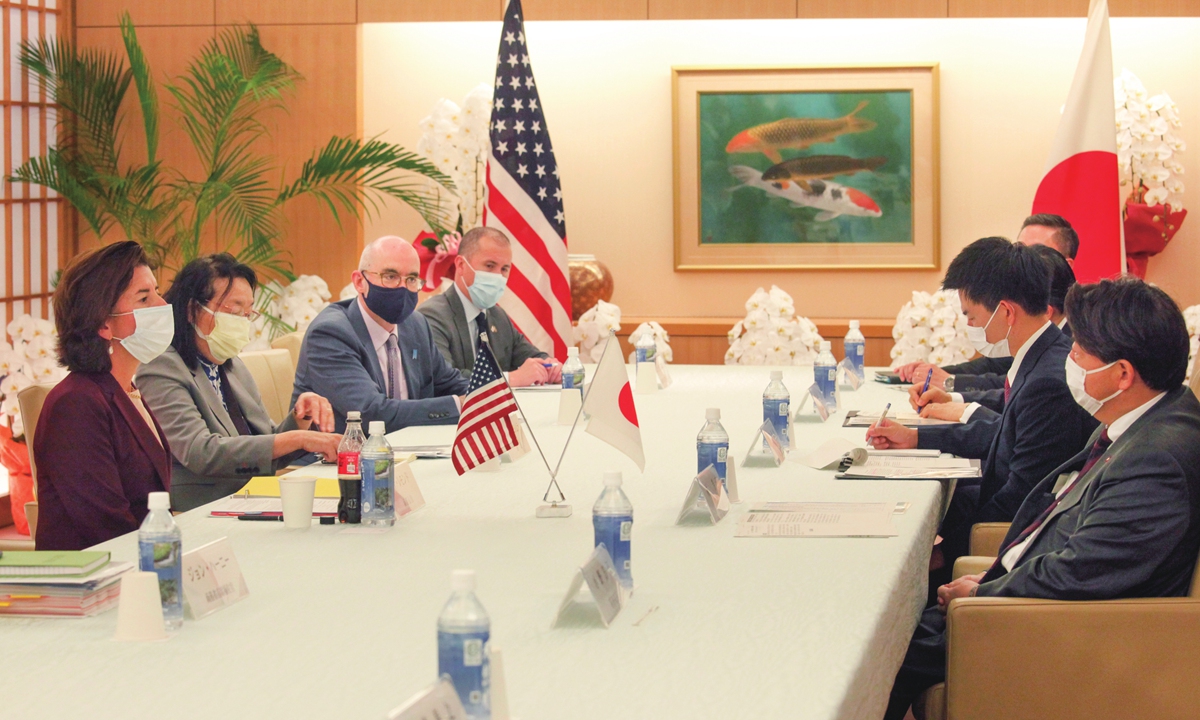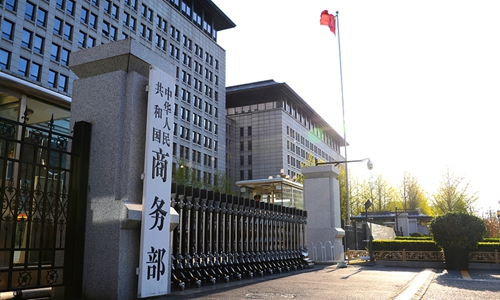US’ push for exclusive trade ties with allies not good for regional economy: expert

US Commerce Secretary Gina Raimondo (left) meets with Japanese Foreign Minister Yoshimasa Hayashi (right) in Tokyo, on November 15, 2021. US and Japanese officials agreed to launch talks aimed at settling a dispute over American tariffs on imports of Japanese steel and aluminum. Photo: VCG
The US' attempt to push for bilateral trade ties with its allies in the Indo-Pacific region, while excluding other countries like China, is not a good signal for the growth of regional economy, which requires multilateral cooperation, a Chinese expert said on Thursday.
US Trade Representative Katharine Tai and Japan's trade and industry minister agreed Wednesday on a new trade partnership to boost cooperation on labor, environment and digital trade issues, with an emphasis on "third country concerns," which appeared to be alluding to China, Reuters reported.
"This partnership will deepen the cooperation between the US and Japan that has defined our strong bilateral trade relationship," Tai said in a statement.
"In this framework, we will discuss issues such as Japan-US common global agenda in the area of trade, cooperation in the Indo-Pacific region as well as bilateral trade cooperation between Japan and the US," said Japan's Ministry of Foreign Affairs.
The Biden administration has been working to rebuild trade ties with allies that became strained during the Trump presidency, and is aiming to expand its influence throughout the Indo-Pacific region. Separately, the US and EU have recently resolved their dispute over the punitive tariffs, with the US agreeing to increase imports from the bloc.
"We could see stronger policy coordination between the US and Japan under the Biden administration, but such bilateral ties point to the exclusion of a third country," Song Guoyou, deputy director of the Center for American Studies at Fudan University, told the Global Times on Thursday.
"The bilateral push instead of a multilateral one is not a good signal for the regional economic growth," Song noted.
In contrast with the US, China is committed to multilateralism and global free trade.
Senior Chinese officials have sent clear signals that China will hold an unwavering stance on further opening up to foreign businesses and promoting global cooperation to tackle rising global economic and trade challenges amid the COVID-19 pandemic, as global attention has been focused on potential cooperation between China and the US following a high-stakes leaders meeting on Tuesday.
"China cannot develop in isolation from the world and nor can the world develop without China," Chinese Vice President Wang Qishan said in a virtual speech on Wednesday at the Bloomberg New Economy Forum held in Singapore. "China will not waver in its resolve to deepen reform and expand opening-up," Wang said, Bloomberg reported.


